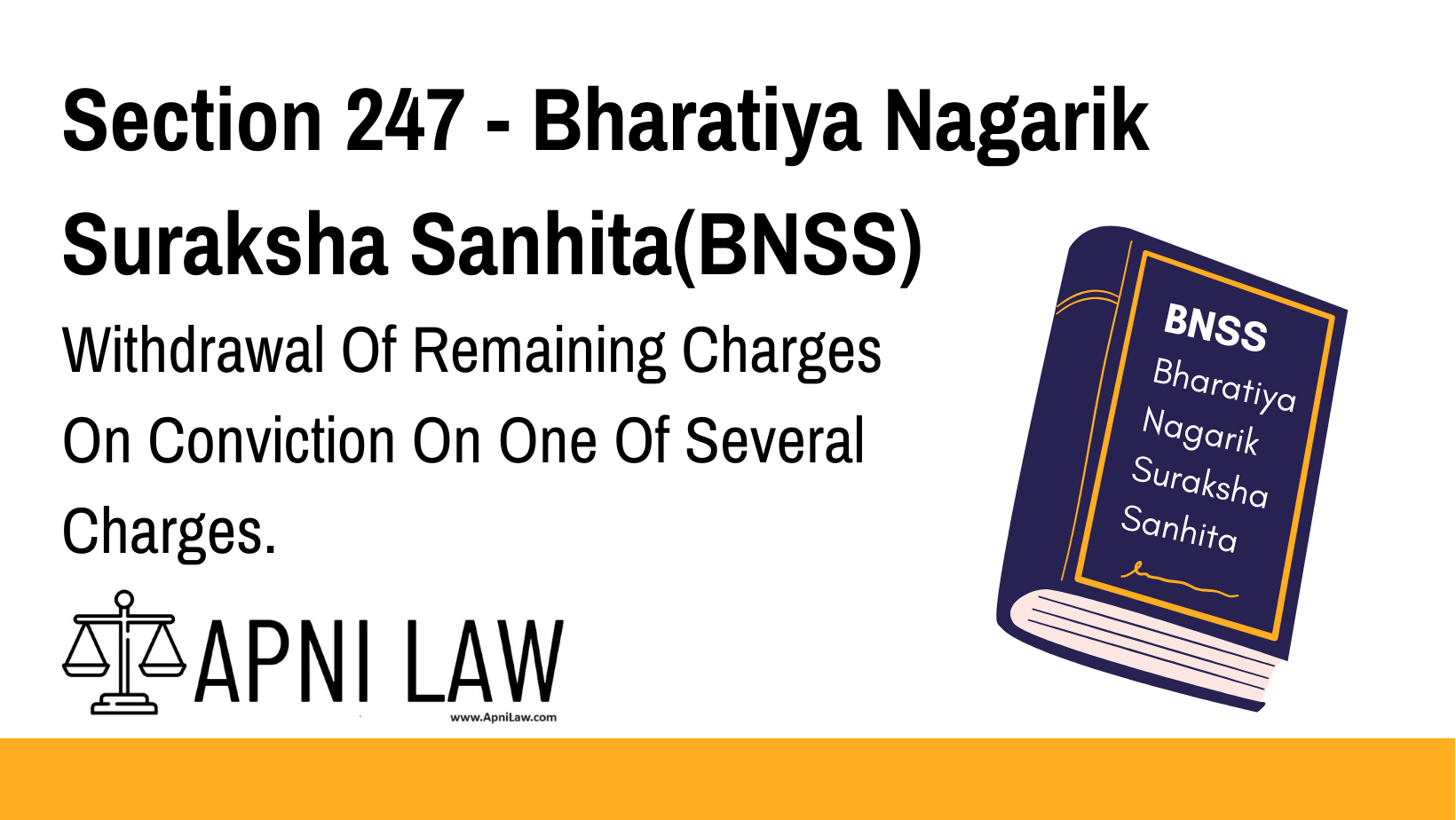Code:
When a charge containing more heads than one is framed against the same person, and when a conviction has been had on one or more of them, the complainant, or the officer conducting the prosecution, may, with the consent of the Court, withdraw the remaining charge or charges, or the Court of its own accord may stay the inquiry into, or trial of, such charge or charges and such withdrawal shall have the effect of an acquittal on such charge or charges, unless the conviction be set aside, in which case the said Court (subject to the order of the Court setting aside the conviction) may proceed with the inquiry into, or trial of, the charge or charges so withdrawn
Explanation:
This section deals with the procedure when multiple charges are framed against a single person. It outlines the process for withdrawing charges or staying their inquiry/trial after a conviction has been secured on one or more of the charges.
- Withdrawal of charges: The complainant or the prosecuting officer, with the Court’s consent, can withdraw the remaining charges after a conviction on one or more charges.
- Staying the inquiry/trial: The Court, on its own accord, can stay the inquiry or trial of the remaining charges after a conviction on one or more charges.
- Effect of withdrawal: Withdrawal of charges under this section has the effect of an acquittal on the withdrawn charges, unless the conviction on the earlier charges is set aside.
- Reopening the inquiry/trial: If the conviction on the earlier charges is set aside, the Court may proceed with the inquiry or trial of the withdrawn charges, subject to any orders made when the conviction was set aside.
Illustration:
Suppose a person is charged with theft (Charge 1) and assault (Charge 2). After trial, the Court finds the person guilty of theft (Charge 1) but not assault (Charge 2). The prosecution, with the Court’s consent, can withdraw Charge 2. This will effectively result in an acquittal for assault, unless the conviction for theft is later overturned.
Common Questions and Answers:
- Q: Can the accused request the withdrawal of charges?
- A: No, the accused cannot directly request the withdrawal of charges. However, they can argue their case and influence the Court’s decision on the withdrawal of charges.
- Q: What if the conviction on the first charge is set aside after withdrawal?
- A: If the conviction is set aside, the Court may proceed with the inquiry or trial of the withdrawn charges, subject to its own orders.
- Q: Does the withdrawal of charges prevent the accused from being tried again on the withdrawn charges?
- A: No, the withdrawal of charges does not bar a fresh prosecution on the same charges, provided the prosecution meets the necessary legal requirements.








